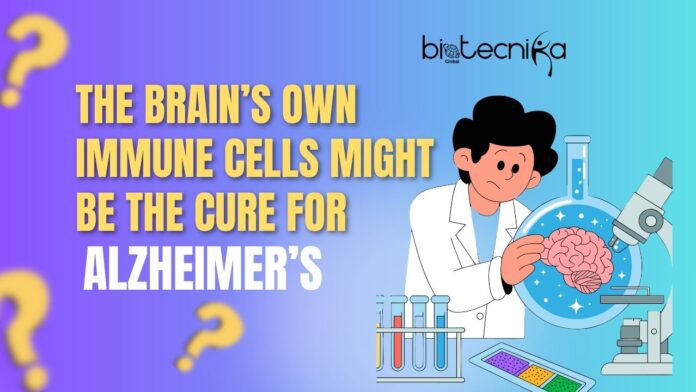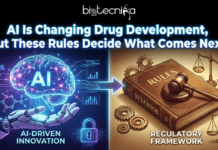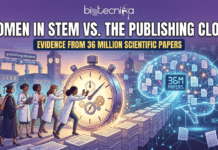The Brain’s Own Immune Cells Might Be the Cure for Alzheimer’s
It’s strange how some of the biggest discoveries don’t really look like breakthroughs at first. The latest study in Nature (November 5) from researchers Dr. Alison M. Goate (D.Phil) and Dr. Anne Schaefer, along with collaborators like Dr. Jean W. Crystal, seems to be one of those things. The story isn’t about a new drug or a silver bullet, but about something that was right there all along, microglia, the brain’s own immune guards are capable of slowing memory loss and reducing damage posing as a potent cure for Alzheimer’s.
Now, scientists have always known that microglia exist as quiet janitors of the nervous system, clearing waste and keeping things tidy. But this new research says something more daring: maybe these little cells are not just passive cleaners. Maybe they are the decision-makers when it comes to Alzheimer’s disease.
The team found that a gene regulator called PU.1 plays a key role in deciding how microglia behave. PU.1 is like a switchboard operator, controlling what microglia do when to clean, when to fight, and when, unfortunately, to overreact. When things go wrong, PU.1 can push microglia into an aggressive state, leading to chronic inflammation, which scientists believe accelerates the destruction of brain cells in Alzheimer’s.
And that’s not all, the study also connected the dots between microglial changes with immune signaling molecules like CD28, which are already well studied in immunotherapy for cancers. This connection between brain immunity and systemic immunity has sparked interest. Possibly, the future of Alzheimer’s treatment won’t be any medication, but a therapy that resets the immune system itself.
For years, sticky amyloid-beta clumps, plaques, and tangled proteins called tau were considered to be the cause of Alzheimer’s. But the more we studied, the stranger it got. Some people had lots of plaques and no signs of memory loss, Others with fewer plaques had severe memory loss. That didn’t make sense, and the void of uncertainty remained.
That’s where the new theory just fits right. It’s not just about what’s stuck in the brain; it’s about how the brain reacts to it. The microglia, instead of calming things down, can sometimes fan the flames. Dr. Goate’s group showed that changing how PU.1 operates could tilt microglia back to a healthy, balanced state, something like trigger a biological mood switch from “panic” to “patrol.”
Dr. Jean Crystal expressed her views, stating, “We’ve been chasing the plaques for too long. Maybe it’s time to listen to the cells that live with them.”
This might appear as a minor detail to a vast background of research, while actually it changes the whole perspective of most prior research and gives a new direction for neuroimmunological research, a field that didn’t even have a proper name a decade ago. Now, researchers around the world are trying to develop immunotherapies and treatments targeting the brain; these therapies can alter the immune responses without causing any inflammation that damages neurons.
Alas, it’s already in motion across biotech hubs from Japan to the U.S., scientists are using single-cell sequencing, CRISPR tools, and molecular modeling to study microglial genes. What used to get recognised as neuroscience is now full-blown biotechnology.
For researchers and students, that means the doors are wide open. The bridge between genetics, data science, and neurobiology is stronger than ever. You could be a coder mapping microglial gene networks, or a wet-lab scientist testing immune modulators; either way, this field is expanding fast.
Governments have also shifted their interest towards investing significantly in Alzheimer’s and dementia research, as the number of people affected continues to rise. Investing firms are now turning their focus towards immune-based approaches not just for Alzheimer’s, but for Parkinson’s, ALS, and other neurodegenerative diseases that once seemed hopeless.
Let’s be honest, no one is saying this is a cure, not yet! The microglia is still a very complex one; reprogramming the immune system of the brain is not a job to be accomplished overnight. But as we look forward this research shows potential, the potential of being an actual cure to this constantly growing problem and opening doors to more discoveries changing perspectives, unveiling facts that we are still unaware of, now if this research proliferates, we could be looking at the first immunotherapy for Alzheimer’s that doesn’t just slow things down, but reshapes how the brain heals itself.
This could be the path for innovation that every researcher dreams of; this might just be the opportunity that makes it possible for the immune system, the brain, and biotechnology to finally speak the same language.






